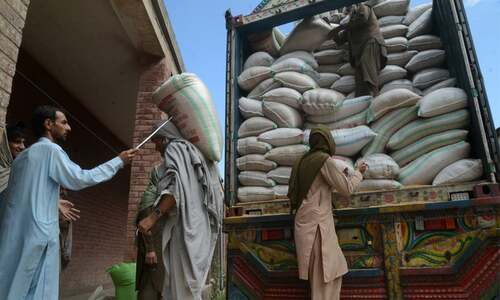ONCE again, India-held Kashmir is in the grip of chaos. At least 30 people have died in the violence triggered by the killing last Friday of Burhan Wani, a young separatist militant, by the Indian army.
More bloodshed can be expected unless the security forces refrain from resorting to brute force that has included the use of live ammunition to disperse angry protesters.
It is a familiar scenario, with the usual condemnations emanating from Kashmiri leaders. But the latter can do little unless they come together to try and revive international interest in the Kashmir dispute by persistently pointing to the injustices inflicted on the ordinary public, and highlighting the Kashmir dilemma as a historical one that needs a political solution.
The key issue is that New Delhi has always looked upon the Kashmir unrest as a law and order problem. Its position that Pakistan fuels dissent within IHK is untenable, for while Islamabad did, in the past, actively encourage Kashmiri separatist groups, today it offers moral and diplomatic support.
Indeed, the current disaffection with New Delhi’s rule is very much an indigenous Kashmiri phenomenon, while India’s harsh methods are helping create a new generation of militants, such as the late Burhan Wani.
For nearly three decades, India’s approach has failed to pacify Kashmir.
Now new ideas are needed that can help bring peace to this troubled region. In Srinagar, the BJP rules in a coalition government with the PDP.
Considering that the BJP is in power both in Srinagar and at the centre, surely the party has a good idea of the Kashmiris’ suffering and can advise New Delhi accordingly.
Sadly, the ruling party, instead of working on ways to calm tensions, is focusing on plans such as diluting or removing Article 370 of the Indian constitution, which recognises Kashmir’s special status.
Such a move would only fuel further disaffection in the region. A wiser approach is needed — one which would involve discussing Kashmir in the Comprehensive Bilateral Dialogue with Islamabad, whenever that resumes — with the Kashmiris themselves taking an active part in the conversation.
A peaceful solution acceptable to Pakistan, India and the people of Kashmir should be the goal arrived at on the negotiating table.
Meanwhile, it is unfortunate that the reaction on this side of the fence to the violence in IHK has been lukewarm.
While there has been condemnation by the Foreign Office, in Azad Kashmir, where leaders never tire of pledging their allegiance to the ‘Kashmir cause’, parties are too busy electioneering to raise a voice against injustices across the LoC.
Mainstream politicians, too, are barely moved. For example, Bilawal Bhutto-Zardari’s comments about the Sharif-Modi friendship harming Kashmir’s cause appear to be aimed more at the PPP’s rivals than at raising genuine concern about the violence in IHK.
Pakistan’s position on Kashmir will only be undermined if leaders here resort to such politicking.
Published in Dawn, July 12th, 2016










































